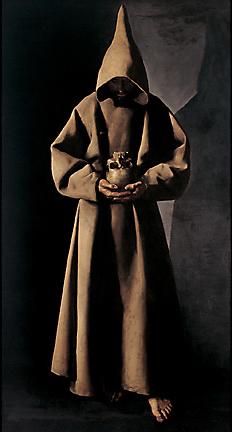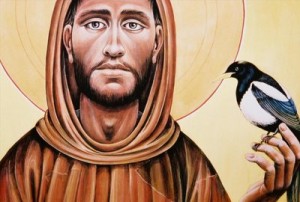 I recently completed the 12 lectures on Francis of Assisi made available through The Great Courses series. I specifically listened to the lectures through Audible via Kindle, where I believe you will be able to purchase them more cheaply than if you get them through The Great Courses directly. The lectures are engaging and are delivered in a tag-team and largely conversational manner by William R. Cook and Ronald B. Herzman, both of the State University of New York in Geneseo.
I recently completed the 12 lectures on Francis of Assisi made available through The Great Courses series. I specifically listened to the lectures through Audible via Kindle, where I believe you will be able to purchase them more cheaply than if you get them through The Great Courses directly. The lectures are engaging and are delivered in a tag-team and largely conversational manner by William R. Cook and Ronald B. Herzman, both of the State University of New York in Geneseo.
Here are the twelve lecture topics:
1. Why Francis of Assisi Is Alive Today
2. The Larger World Francis Inherited
3. The Local World Francis Inherited
4. From Worldly Knight to Knight of Christ
5. Francis and the Church
6. Humility, Poverty, Simplicity
7. Preaching and Ministries of Compassion
8. Knowing and Experiencing Christ
9. Not Francis AloneThe Order(s) Francis Founded
10. Not Men AloneSt. Clare and St. Francis
11. The Franciscans After Francis
12. A Message for Our Time
Despite the fact that Ronald Herzman says “kind of” a LOT and William Cook says “sort of” a LOT, these lectures are very, very good. They are basically introductory in nature, though even those familiar with the story of Francis will benefit from many of their points and interpretations regarding Francis and his life. They provide very helpful information about the cultural realities of Francis’ day and about how the Franciscan movement must have appeared at that time. Their discussion of Claire was extremely interesting and I learned a great deal from it. Furthermore, I thought that the two presenters did a very good job discussing the movement in the years following Francis’ death.
I suppose more than anything I really appreciated the respectful tone of the presenters. They clearly appreciate Francis though they do not indulge in hagiography. Neither do they exhibit any hyper-skeptical materialism. For some reason, I expected to hear some of this. I did not. I know not if the presenters are believers, but they handled the story of Francis and what he stood for very fairly and very, again, respectfully.

 From June 6-7, a number of men from Central Baptist Church, North Little Rock, spent time in a retreat at Subiaco Abbey in Subiaco, Arkansas. This was the first of what I intend to be annual “Mighty Men of God” retreats in which men consider the lives of great men from Christian history. This year we considered the life of Francis of Assisi and what his example can show us about what it means to follow Jesus. To that end, I put together a workbook highlighting four episodes from Francis’ life. I am providing the Leader’s Guide of the workbook
From June 6-7, a number of men from Central Baptist Church, North Little Rock, spent time in a retreat at Subiaco Abbey in Subiaco, Arkansas. This was the first of what I intend to be annual “Mighty Men of God” retreats in which men consider the lives of great men from Christian history. This year we considered the life of Francis of Assisi and what his example can show us about what it means to follow Jesus. To that end, I put together a workbook highlighting four episodes from Francis’ life. I am providing the Leader’s Guide of the workbook